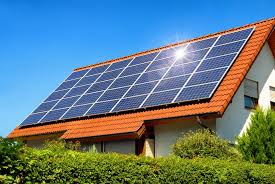The federal government on Tuesday presented the Budget 2025–26 in the National Assembly, proposing an 18% sales tax on imported solar panels in a move aimed at supporting local manufacturers and correcting long-standing imbalances in the sales tax system. Finance Minister Muhammad Aurangzeb explained that the measure is intended to create a level playing field between imported and locally produced solar panels, encouraging growth in Pakistan’s domestic solar industry, which has long struggled to compete with cheaper international alternatives.
He added that the proposed tax is part of broader fiscal reforms under the budget, designed to ensure fairness across sectors. This step aligns with commitments under Pakistan’s agreement with the International Monetary Fund (IMF), which has already led to sharp increases in electricity and gas tariffs to support debt-ridden power suppliers. As a result, electricity prices have surged by more than 25% on average, prompting a rapid shift to solar power among consumers. According to UK-based energy think tank Ember, solar energy accounted for over 14% of Pakistan’s power mix in 2023, up from 4% in 2021, surpassing coal as the third-largest energy source and outpacing even China in relative share.
However, this solar boom has excluded much of Pakistan’s urban middle class, many of whom continue to face high power bills without access to solar solutions. Most installed solar systems in the country are not grid-connected, meaning excess energy cannot be sold back, and the benefits remain concentrated among the affluent. This shift has further strained the national power grid, as wealthier households with solar panels exit the system, leaving utilities to raise tariffs on remaining consumers to cover costs. Energy consultancy Arzachel noted that this imbalance has compounded financial pressure on those still dependent on conventional electricity sources.














